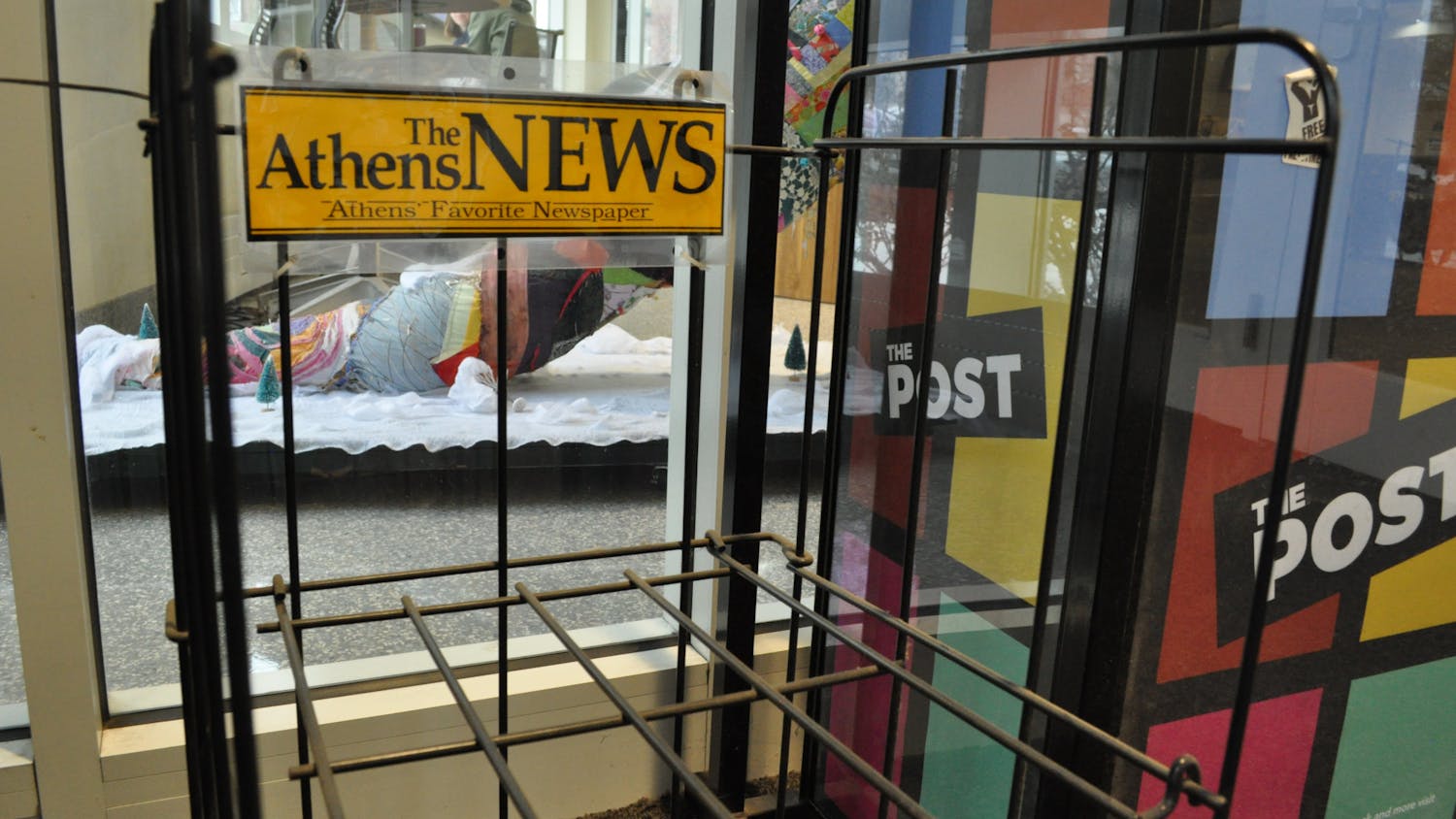Athens is just outside the zone of totality for the total solar eclipseMonday, April 8, which will be one of the biggest celestial events of the year. In Athens, the maximum eclipse will occur around 3:15 p.m.
A solar eclipse happens because the moon orbits Earth and Earth orbits the sun. The planes of those two orbits are offset from one another by a 5-degree angle, and about every 18 months, the orbits line up, casting a shadow, Douglas Clowe, professor and director of the Astrophysics Institute, said.
That shadow will completely block the face of the sun, darkening the sky as if it were dawn.
However, for a total solar eclipse to cast its shadow on land is “relatively rare,” Clowe said. The last time Ohio saw a total solar eclipse was in 1806.
“The next time the shadow of the moon passes through Ohio is not till 2099,” Clowe said. “Even though they occur somewhere on Earth every 18 months because that shadow is so small, it's going to be another 75 years before it comes through Ohio again.”
Areas like Cleveland and Toledo have 100% solar eclipse totality while Athens has 97% totality. The path of totality comprises 13 states and is 115 miles wide. The longest duration of totality is 4 minutes and 28 seconds, near Torreón, Mexico.
It should be noted that it is dangerous to look at a total solar eclipse without proper eye protection, as doing so could cause severe eye damage.
“Every ophthalmologist is on call at every hospital during this period,” Clowe said. “It's not worth looking at the sun directly and risking your eyesight.”
The Center for Student Engagement and Leadership is hosting a solar eclipse viewing event from 2-4 p.m., April 8, at Paw Print Park on the Athens campus. About 3,000 pairs of solar eclipse glasses were ordered by the university and will be handed out to students, Clowe said.
Elizabeth Sayrs, executive vice president and provost, and Faculty Senate Chair Sarah Wyatt wrote in an email to faculty and staff to plan on wearing eclipse glasses during the entire eclipse on most of Ohio University’s campuses.
“Even when (the eclipse is) down to that 97% covered, that 3% that's left is still too bright for your eyes to look at without damaging them,” Clowe said. “It may not seem like it because it's going to be a little bit darker outside, but that little bit is still incredibly bright.”
Alternatively, regarding the solar eclipse glasses, Clowe suggested makeshift ways to view the eclipse without looking directly at the sun.
“Instead look at an image of the sun. You can do this using things like a pinhole camera,” Clowe said. “Where you have a cardboard box, you can cut out a little back end of one, put some a little foil over it, poke a little pinhole. Then on the inside of the other end of the aluminum box, you can take a piece of white paper, and that pinhole acts as an imaging camera.”
Clowe said if you look at the sun from the shadow of a tree, the gaps between leaves and branches will be small enough to replicate pinhole cameras causing a shadow of the eclipse on the ground.
“If you have the pinhole camera or the equivalent, you can look as long as you want because you're never looking directly at the sun that way,” Clowe said.
Because the full solar eclipse lands on a day of classes for students, faculty and staff, the email from Sayrs and Wyatt urged understanding and flexibility for students who miss class because of the “once-in-a-lifetime” nature of the full eclipse.
Sayrs and Wyatt said they anticipate students will travel from Athens to an area with or near 100% totality because of its close distance.
The email encouraged colleagues to consider excused absences, alternative assignments or other means to allow students to view the rare phenomenon. It also said to share any eclipse-related absence information with students so they are aware.
Alongside the Paw Print Park viewing event, solar eclipse viewing events also occur on the Zanesville, Chillicothe and Lancaster campuses. Although at different southern Ohio locations, the timeline of totality will be seconds and even minutes off, compared to the Athens timeline. Extension campuses, Dublin and Cleveland, will be in the path of 100% totality.






